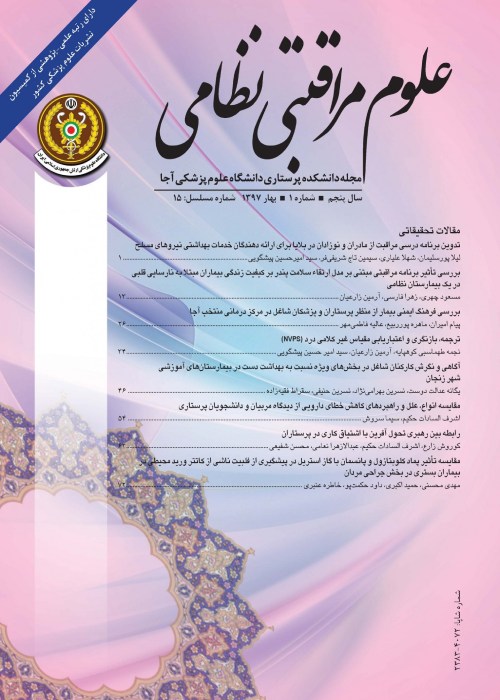The Effect of Power and the Moderating Role of Aggression on Empathic Behavior in Military Sample
Power and empathic behavior of perspective-taking in recent researches in the field of psychology, especially social and military psychology, has taken on a different meaning to the extent that these two can improve interpersonal military relationships. In most studies, the role of empathy in military relations is very important in reducing stress and aggression.
The purpose of this study was to investigate the effect of power on empathic behavior, the role of moderating aggression and the relationship between empathy and aggression in a military sample.
This study was carried out in two stages. Initially, 48 soldiers completed the questionnaire of dispositional empathy by Davis and Dewerks' and the questionnaire of interpersonal aggression by bass and Perry. In the second stage, these soldiers were randomly assigned to three groups: high power, low power, and neutral power. In the first stage, the correlation method was used and in the second stage of the experiment, logistic regression analysis was used to investigate the effect of power on empathic behavior of perspective-taking and control variables of dispositional empathy, interpersonal aggression, and demographic variables. Finally, the data were analyzed using SPSS version 18.
The findings of the first stage of this study indicated a significant association between dispositional empathy and interpersonal aggression (P= 0.44 and α <0.05); in the second stage the effect of power on empathic behavior of perspective-taking (P=0.033 and α <0.05) And the moderating role in relation between power and empathic behavior of perspective-taking were also significant (P= 0.018 and α<0.05).
The results of this study indicate that the probability that individuals with higher scores of anger show empathy behaviors (English E in reverse direction) are 45.58 times higher than those who have lower scores in the subscales of anger. The low power person behaves in an empathic way 0.066 times more likely than those with high power.
- حق عضویت دریافتی صرف حمایت از نشریات عضو و نگهداری، تکمیل و توسعه مگیران میشود.
- پرداخت حق اشتراک و دانلود مقالات اجازه بازنشر آن در سایر رسانههای چاپی و دیجیتال را به کاربر نمیدهد.


